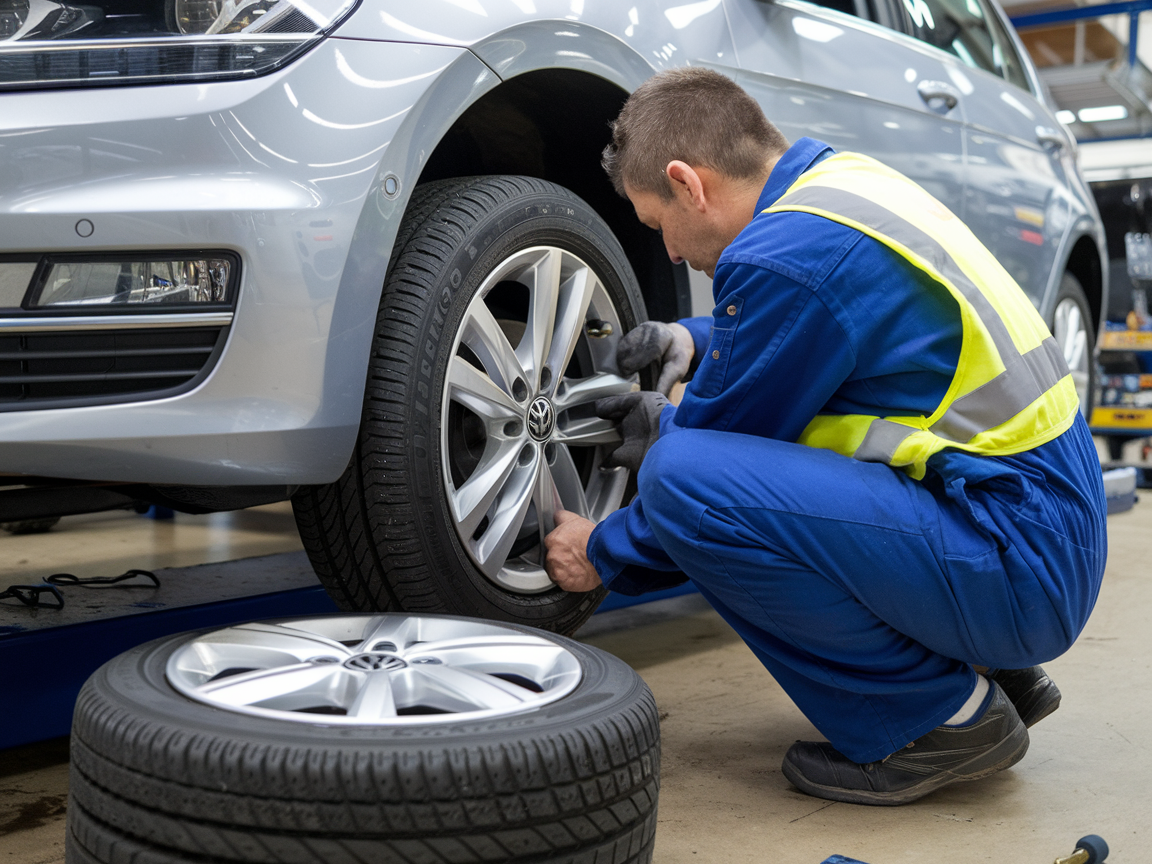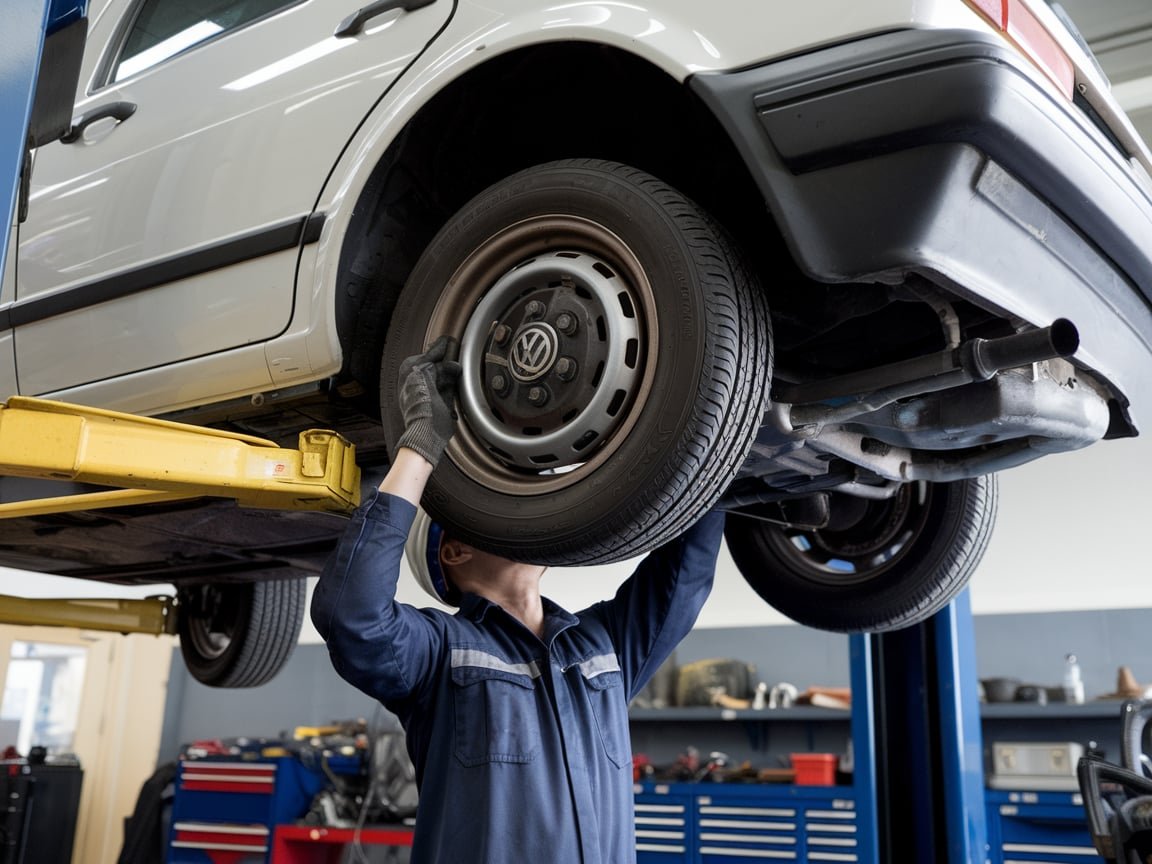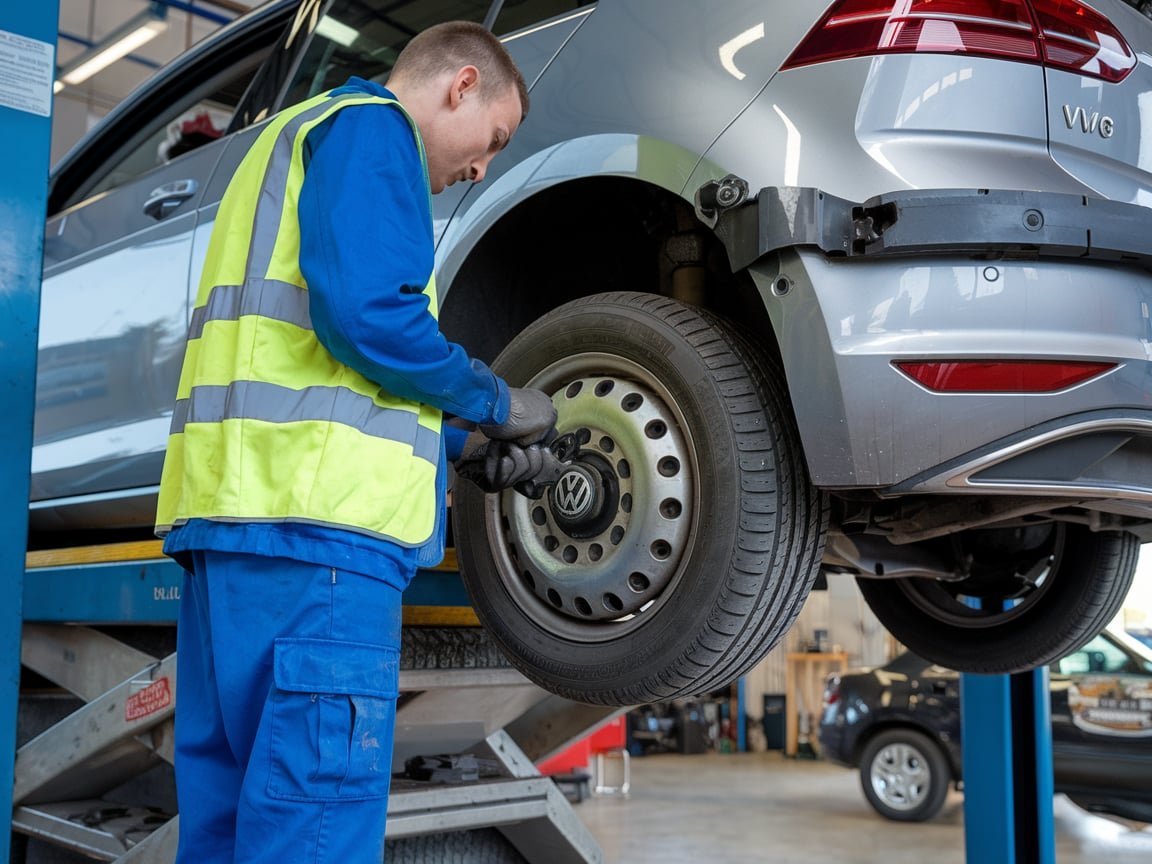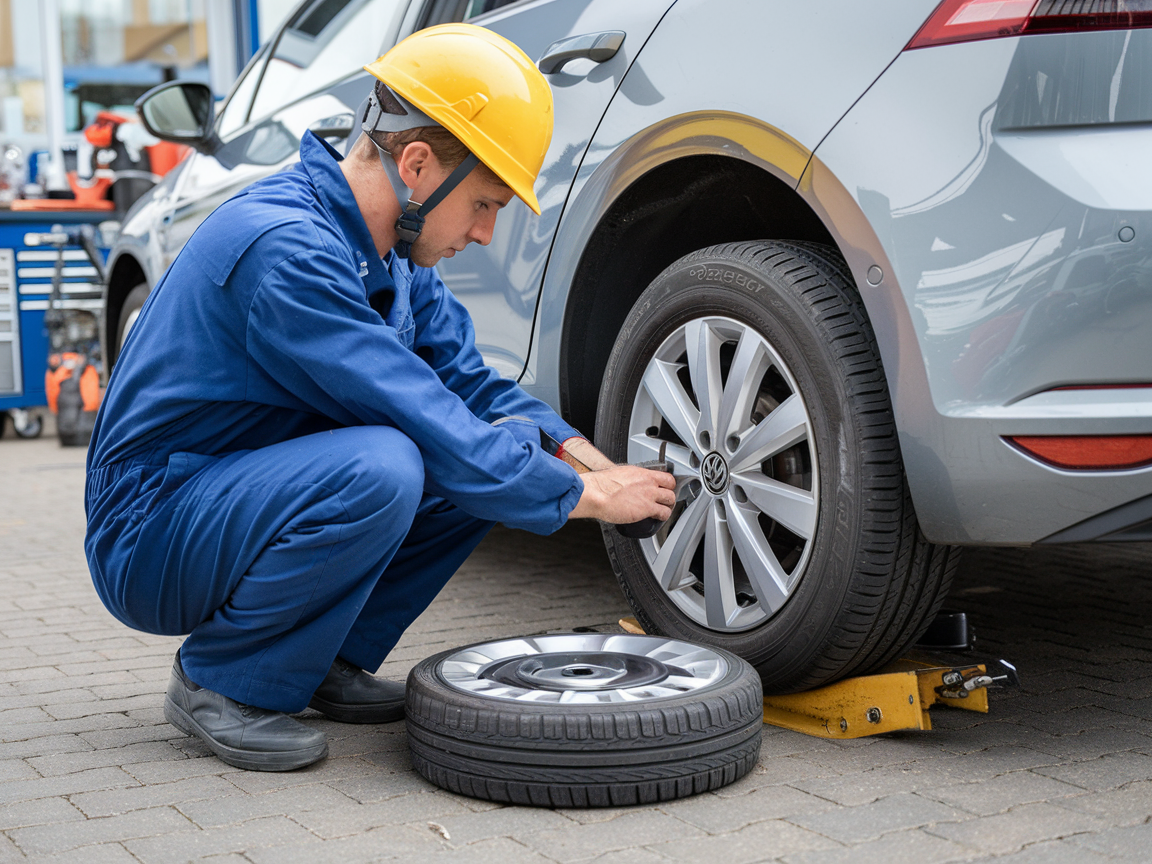Ever felt a weird vibration or heard a strange hum while driving your VW Golf? If you have, there’s a good chance it’s time to replace your VW Golf wheel bearings. Now, I know, “wheel bearings” might sound like one of those things you don’t think about until it’s too late. But trust me, ignoring them can lead to bigger problems down the road—literally. A failing bearing can mess with your car’s performance and even put your safety at risk. In this guide, we’ll break down why it’s important to take care of your VW Golf’s wheel bearings before they cause a major headache. Let’s dive in and get you back on the road, smoothly and safely.

Think of a VW Golf wheel bearing as the part that lets your wheels spin freely without grinding against each other. It’s made up of small steel balls or rollers packed inside a metal ring, and it supports the weight of your car while allowing your wheels to rotate smoothly.
But here’s the kicker: wheel bearings don’t last forever. Over time, all that constant spinning and friction wears them down. When they go bad, you’ll start hearing odd sounds, feeling vibrations, and your car won’t drive the way it should. Ignoring it? Well, that leads to bigger problems—like expensive repairs.
So, why should you care about wheel bearings in your VW Golf? Here’s the thing: they affect everything from how smoothly your car drives to your safety on the road.
In a VW Golf, you want everything to run like clockwork. That means keeping those wheel bearings in check. A small issue can turn into a big headache if you wait too long to fix it. And trust me, it’s better to deal with it now than later.


You’re driving along, and something just doesn’t feel right. Maybe it’s a noise, or the way the car handles, but it’s hard to ignore. Here are the signs that could mean your wheel bearing is starting to go:
Wheel bearings don’t just fail suddenly; there are several factors that contribute to their wear and tear, especially in a VW Golf.
Everyday driving puts pressure on VW Golf wheel bearings. The constant friction from turning and the weight of the car wears them down over time. It’s a slow process, but it adds up.
Dubai’s heat, dust, and rough roads speed up bearing wear. The high temperatures cause faster deterioration, while sand and dirt can get into the bearings, increasing friction.
Aggressive driving—like fast cornering, abrupt braking, and overloading your car—puts extra strain on the bearings. These habits force the bearings to work harder, making them wear out quicker.
Skipping maintenance checks can lead to unnoticed bearing issues. Regular wheel alignments and inspections can catch problems before they become bigger.
Incorrect tire pressure causes uneven stress on the bearings. Whether too low or too high, it leads to faster bearing wear and tear.
Driving through puddles or wet conditions can let water into the bearings, causing rust and corrosion, which speeds up their failure.
Replacing a wheel bearing isn’t just about swapping a part—it requires precision to keep your VW Golf running smoothly and safely. Here’s how we do it, step by step:
Before we touch anything, we need to be sure the wheel bearing is the problem. Misdiagnosing it can lead to unnecessary repairs. Our process includes:
Once the issue is confirmed, we carefully remove parts to access the bearing. Precision is key to prevent damage to nearby components. We remove:
Old bearings don’t just slide out—they’re tightly pressed in and require special tools to remove them without causing damage. This step involves:
A bad installation can lead to premature failure, so we ensure the new bearing is fitted correctly. This step includes:
Now, it’s time to put everything back together and make sure the new bearing works perfectly. We:
We don’t just install and send you on your way—we thoroughly test the vehicle to make sure everything is running perfectly. Our final checks include:
A worn-out VW Golf wheel bearing affects your car’s safety and performance. If you’ve noticed grinding noises, vibrations, or uneven tire wear, it’s time to get it checked before it leads to bigger problems!

A VW Golf wheel bearing replacement usually takes 2 to 3 hours, but this depends on several factors. If the hub assembly is in good condition, the process is quicker. However, rust, corrosion, or damage to nearby components can slow things down.
We take the time to ensure proper installation, torque settings, and alignment checks so your VW Golf runs smoothly. Using original VW bearings speeds up the process, as they fit perfectly without modifications. While we work efficiently, safety and precision always come first.
Using genuine VW parts for replacing the VW Golf wheel wheel bearing ensures long-term reliability and safety. Here’s why it matters:
Not all OEM parts are created equal. Original VW bearings are built to match factory specifications, ensuring perfect fitment and durability. Aftermarket parts may seem cheaper but often compromise on material quality and lifespan.
A VW Golf wheel bearing directly affects your VW Golf’s handling, stability, and ride comfort. Genuine parts reduce friction, minimize wear, and provide smoother performance. Poor-quality bearings can cause premature failure, leading to costly repairs.
Using original VW parts helps maintain your warranty and resale value. Non-genuine parts can void manufacturer warranties, making future claims difficult. Plus, buyers prefer vehicles with authentic VW components, ensuring a better resale price.
The cost of replacing a VW Golf wheel bearing in Dubai depends on factors like the model year, labor charges, and choice of parts (genuine vs. aftermarket). Below is an estimated price breakdown:
Service | Estimated Cost (AED) | Notes |
Front Wheel Bearing Replacement | 300 – 800 | Prices vary based on model and whether genuine VW parts are used. |
Rear Wheel Bearing Replacement | 300 – 800 | Similar pricing to front bearings; confirm with your service provider. |
Labor Costs | 150 – 400 | Depends on service center and complexity of the job. |
These are approximate costs, and actual pricing may vary. It’s best to check with specialized VW garages in Dubai for an accurate quote based on your car’s model and condition.
When it comes to VW Golf wheel bearing replacement, you need a service that’s reliable, efficient, and specialized in Volkswagen vehicles. Here’s why we stand out:
We don’t just work on any car—we specialize in Volkswagen models, including the VW Golf. Our technicians have extensive experience and training in VW-specific repairs, ensuring precision and quality.
A failing VW Golf wheel bearing isn’t always easy to detect. That’s why we use advanced diagnostic tools to pinpoint the exact issue. This ensures an accurate diagnosis and eliminates unnecessary repairs.
We only use original VW Golf wheel bearings, ensuring the best fit, durability, and performance. Unlike aftermarket parts, genuine bearings last longer and don’t compromise your car’s handling or safety.
No surprises. No hidden fees. We provide upfront pricing so you know exactly what to expect. Our team will explain the repair process and costs before starting any work.

A worn-out VW Golf wheel bearing isn’t just an inconvenience—it’s a serious safety risk. Delaying a replacement can lead to steering issues, uneven tire wear, and even brake failure. The longer you wait, the more damage it can cause to other parts of your VW Golf, leading to expensive repairs.
Don’t wait until the problem worsens. Visit our VW-specialized garage in Dubai for a professional inspection and reliable VW Golf wheel bearing replacement. Our expert technicians, genuine VW parts, and transparent pricing ensure you get the best service possible.
“Talk to a Volkswagen Expert Now by booking a call, and get personalised solutions for your Volkswagen unique needs and requirements.”
+971564646081
